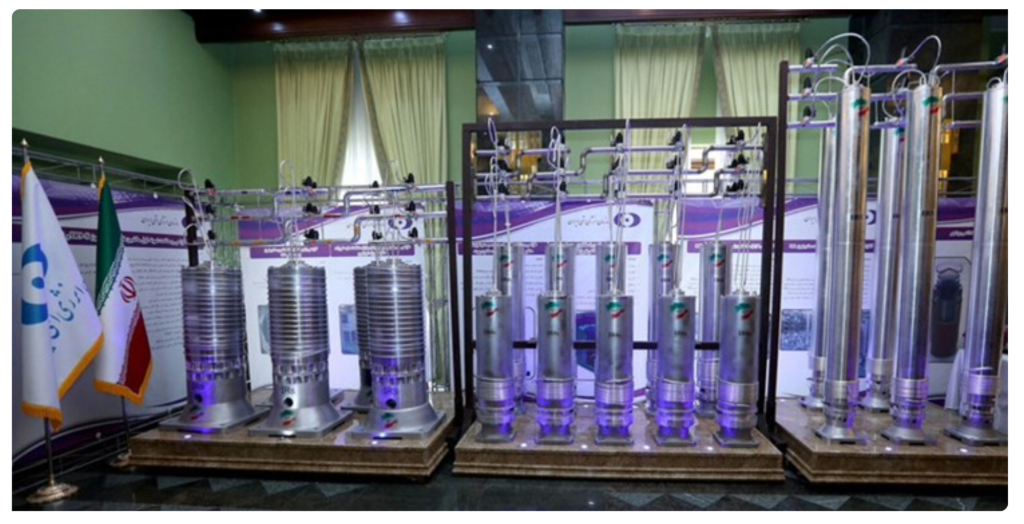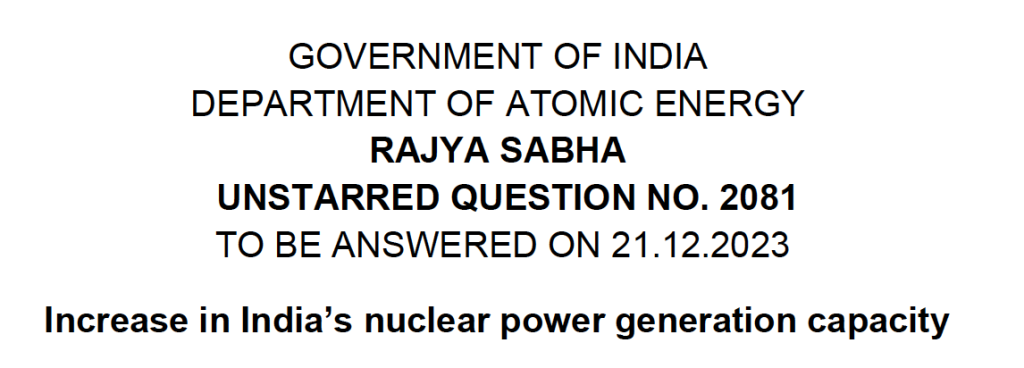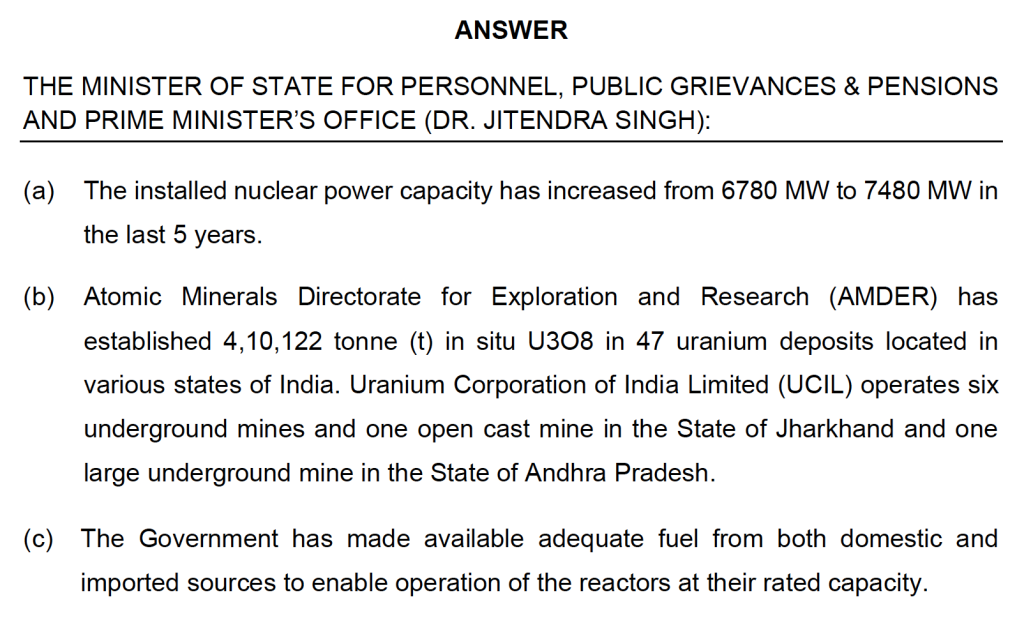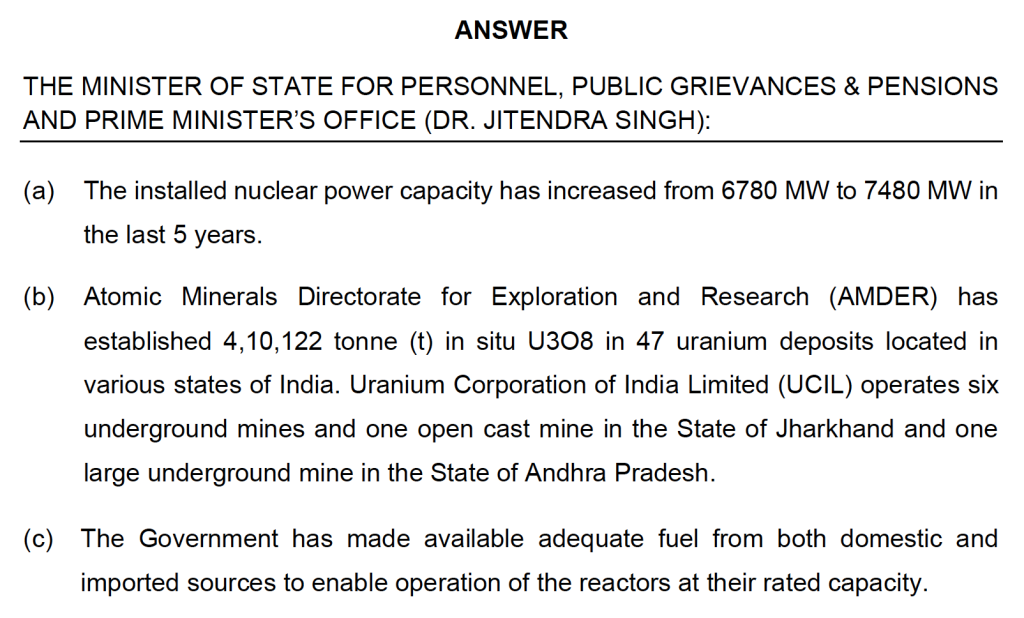This December FNA story has a photograph of three types of Iranian centrifuges.


This December FNA story has a photograph of three types of Iranian centrifuges.

During a recent UNGA meeting, representatives from China and the United States had an exchange concerning China’s nuclear weapons program.
United States:
Turning to China, we stand by our statements that the People’s Republic of China is undertaking a significant expansion and modernization of its nuclear forces. We assess that it will increase its production of nuclear warheads to 1,500 by 2035. China’s lack of transparency as to the size and composition of its nuclear stockpile makes it difficult to gauge its intentions. In addition, it continues to rebuff substantive bilateral engagement on risk reduction with the United States. That destabilizing uncertainty extends to other areas. The People’s Republic of China is also developing new nuclear-fuel cycle capabilities to include plutonium production and reprocessing facilities that are very likely to support its nuclear force expansion. Notably, it is building two CFR-600 fast-breeder nuclear reactors, which are optimized for the production of weapon-grade plutonium. It has made the choice to start up the breeder reactors using HEU fuel rather than MOX fuel. Using HEU fuel as the reactor fuel enables the production of weapon-grade plutonium in the reactor core. Each year, each of the People’s Republic of China’s CFR-600 reactors could produce enough plutonium for dozens of nuclear warheads.
China:
I will be very brief. The representative of the United States, in exercising the right of reply, once again anticipated that by 2035, China’s nuclear capability will develop further. Moreover, she questioned China’s intent in developing its nuclear capabilities. Those areall groundless projections, and I would therefore like to state a few facts. China’s nuclear policy is highly transparent, and China has always explicitly revealed its intentions in that regard. China remains steadfast on a path of peaceful development and abides by its nuclear strategy of self-defence. It is also the only country among the five nuclear Powers to commit to refraining from being the first to use nuclear weapons. China has always advocated that the nuclear Powers should all be committed to refraining from using nuclear weapons. They should sign and ratify all the relevant treaties, honour their commitments to refraining from targeting any country with their nuclear weapons or formulating a nuclear deterrence policy against any country, with a view to avoiding accidents and any unauthorized launch of nuclear weapons. China feels compelled to ask the representative of the United States whether her country is willing to undertake the same commitment with regard to refraining from being the first to use nuclear weapons. We believe that kind of transparency would be very meaningful.
I hadn’t seen this until recently.
This December 21 DAE report provides some details about India’s nuclear energy program:



The 2020 NASIC report has a paragraph about solid- vs. liquid-fueled missiles:
The trend in modern missile systems has been toward the use of solid propellants because of their reduced logistical requirements and simplicity of operation. However, some nations have greater access to liquid-propellant technology and continue to develop new liquid-propellant missiles. In addition, liquid-propellant missiles can be more efficient than solid-propellant missiles for very heavy payloads. The missiles with the world’s heaviest payloads, the Russian SS- 18 and Chinese CSS-4, are liquid-propellant ICBMs, and Russia is developing a new heavy-lift, liquid-propellant ICBM called the Sarmat.
This past June, the UN published the final report of the Group of Governmental Experts to Further Consider Nuclear Disarmament Verification Issues
the Group developed the following working definition to guide its work: nuclear disarmament verification is a process driven by states parties to a specific treaty, agreement or arrangement, of gathering and analysing information, based on agreed technologies, methodologies and procedures, to enable assessment of compliance with relevant nuclear disarmament commitments and obligations, or an assessment of adherence to unilateral undertakings as set out in a verification arrangement, with the overarching goal of achieving and maintaining a world free of nuclear weapons.
From the God Dethroned album Passiondale:
Vicious death creeping across the fields
Mustard gas, a deadly hellish fiend
A choking grip is locked around your neck
Vomit blood, your face turns grey, you’re dead
From an excerpt of R Chidambaram’s memoirs:
Money was allocated from a ‘secret fund’ maintained by the Defence Research and Development Organisation (DRDO). In the 1990s, Prime Minister PV Narasimha Rao told scientists ‘to be prepared to carry out the tests anytime on 10 days’ notice’. But the tests were put off for fear of the economic fallout. Atal Behari Vajpayee gave the go-ahead soon after he became the PM in 1996. Scientists were in Pokhran and had placed the main nuclear device in the chamber and sealed it. They were ready to place the same in the shaft when the test was called off due to the no-confidence motion against the Vajpayee government. The tests were finally conducted in 1998. “The extra time of two years allowed us to develop more sophisticated devices,” Chidambaram says in the book.